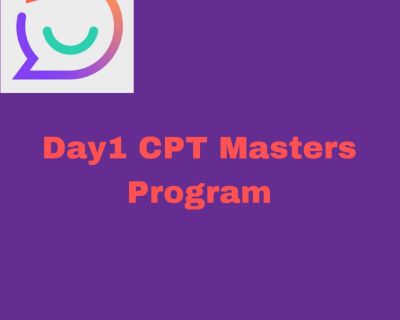Confidence is a key factor in achieving success in the IELTS Speaking Test. Being confident not only enhances your performance but also helps you showcase your English-speaking skills more effectively. In this article, we will share practical tips and strategies to help you build confidence for the IELTS Speaking Test.
1. Understand the Test Format
Having a clear understanding of the IELTS Speaking Test format is crucial in building confidence. Familiarize yourself with the test structure, types of questions, and assessment criteria to know what to expect on test day. This knowledge will help you feel more prepared and confident when facing the exam.
1. Practice Regularly
Regular practice is crucial to build confidence for the IELTS Speaking Test. Dedicate ample time to practicing speaking in English and make it a part of your daily routine. Some ways to practice include:
- Engaging in conversations with native English speakers
- Participating in language exchange programs
- Joining English-speaking clubs or communities
- Recording yourself speaking on various topics and analyzing your performance
Consistent practice will help you become more comfortable speaking in English, enabling you to express your thoughts more clearly and fluently during the test. You can also check out these practice tips for more ideas.
2. Expand Your Vocabulary
A strong vocabulary is essential to express your ideas accurately and effectively. Aim to learn new words daily, focusing on synonyms and collocations. Techniques for building your vocabulary include:
- Reading newspapers, books, articles, and blogs in English
- Watching movies and TV shows with English subtitles
- Using flashcards and vocabulary apps
- Keeping a vocabulary journal to record and review new words
Remember to practice using these words in context to ensure you can apply them in the IELTS Speaking Test confidently. For more guidance, visit our article on right vocabulary usage.
3. Improve Your Pronunciation
Accurate pronunciation is vital for clear communication during the IELTS Speaking Test. To enhance your pronunciation, focus on:
- Learning the correct pronunciation of individual sounds
- Familiarizing yourself with common stress patterns and intonation
- Practicing minimal pairs (words with similar sounds)
- Listening to native English speakers and imitating their pronunciation
- Using pronunciation resources and apps
Regularly practicing these techniques will help you speak more clearly and confidently during the test. Explore more pronunciation tips to further refine your skills.
4. Focus on Fluency and Coherence
Fluency and coherence play a significant role in your IELTS Speaking Test score. To improve these aspects:
- Practice speaking at a natural pace, avoiding long pauses and hesitations
- Use appropriate linking words and phrases to connect your ideas
- Organize your thoughts before speaking
- Develop strategies to handle unfamiliar topics, such as paraphrasing and asking for clarification
Practicing these skills will enable you to convey your ideas more smoothly, increasing your confidence during the test. Learn more about linking words and phrases to enhance your fluency and coherence.
5. Polish Your Grammar Skills
Good grammar is crucial for effective communication in the IELTS Speaking Test. To improve your grammar:
- Review essential English grammar rules and concepts
- Complete grammar exercises and quizzes
- Seek feedback from teachers, tutors, or native English speakers
- Correct your mistakes and learn from them
By refining your grammar skills, you’ll be better equipped to express yourself accurately and confidently during the test. Find additional grammar tips to help you succeed.
6. Familiarize Yourself with the Test Format and Criteria
Understanding the IELTS Speaking Test format and assessment criteria will help you feel more confident during the test. To familiarize yourself:
- Review the test format, including the three parts of the Speaking Test
- Study the assessment criteria, focusing on fluency, coherence, lexical resource, grammatical range and accuracy, and pronunciation
- Analyze sample answers and practice questions
- Take mock tests to simulate the test environment
By knowing what to expect during the test, you’ll be better prepared and more confident in your abilities. Visit our guide on IELTS Speaking overview, format, and scoring details for a comprehensive understanding of the test structure.
7. Practice Time Management
Managing your time effectively is crucial for success in the IELTS Speaking Test. To improve your time management skills:
- Set a timer during practice sessions to become familiar with the time constraints
- Organize your thoughts quickly and efficiently
- Prioritize the main points you want to communicate
- Practice answering questions within the allotted time
Developing strong time management skills will help you feel more confident and in control during the test. Read more about the importance of time management in our dedicated article.
8. Use Body Language Effectively
Effective body language can help convey confidence during the IELTS Speaking Test. To improve your body language:
- Maintain eye contact with the examiner
- Use appropriate facial expressions to convey emotions
- Keep a confident posture and avoid fidgeting
- Use hand gestures to emphasize points and convey meaning
Practicing these body language techniques will help you appear more confident and engaged during the test. Check out our body language tips for more guidance.
9. Take Mock Tests
Taking mock tests is an excellent way to build confidence and assess your progress. Mock tests help you:
- Familiarize yourself with the test format and environment
- Identify your strengths and weaknesses
- Develop strategies to improve your performance
- Track your progress over time
Regularly taking mock tests will prepare you for the actual test and increase your confidence. Discover the benefits of mock tests in our detailed article.
10. Seek Feedback and Support
Seeking feedback from teachers, tutors, or native English speakers can help you identify areas for improvement and build confidence. They can provide valuable insights, guidance, and encouragement to help you succeed in the IELTS Speaking Test. Consider enrolling in a preparation course or seeking tutor support for personalized guidance.
11. Stay Positive and Motivated
Maintaining a positive mindset and staying motivated are essential for building confidence. To stay positive:
- Set realistic goals and celebrate your achievements
- Focus on your progress and the areas you’ve improved
- Surround yourself with supportive people
- Develop a study plan to keep you on track
A positive attitude and strong motivation will help you remain confident and persistent throughout your IELTS Speaking Test preparation.
12. Prepare for Test Day
Being well-prepared for test day will help you feel more confident and relaxed. To prepare:
- Ensure you have all necessary documents and materials
- Familiarize yourself with the test center location and arrival time
- Get a good night’s sleep before the test
- Eat a nutritious meal and stay hydrated
Following these [test day tips](www.blog.trykandor.com/ielts-speaking/test-day-tips) will ensure you’re physically and mentally prepared for the IELTS Speaking Test, ultimately boosting your confidence.
In conclusion, building confidence for the IELTS Speaking Test requires a combination of regular practice, improving your language skills, familiarizing yourself with the test format, and maintaining a positive mindset. By following the tips outlined in this article and utilizing the resources provided, you’ll be well on your way to achieving success in the IELTS Speaking Test. Remember, practice makes perfect, and with consistent effort, you’ll feel more confident and ready to ace the test.

















